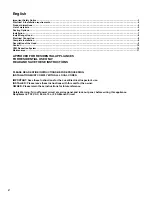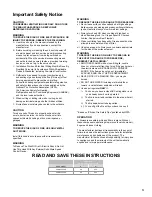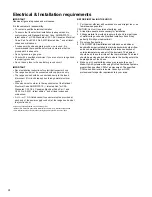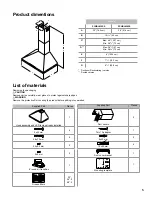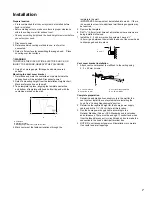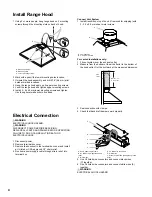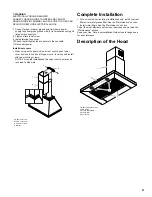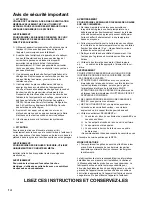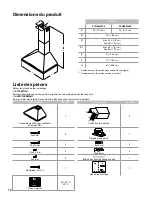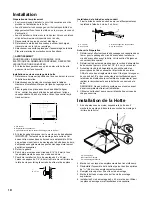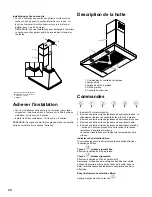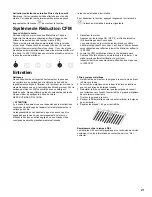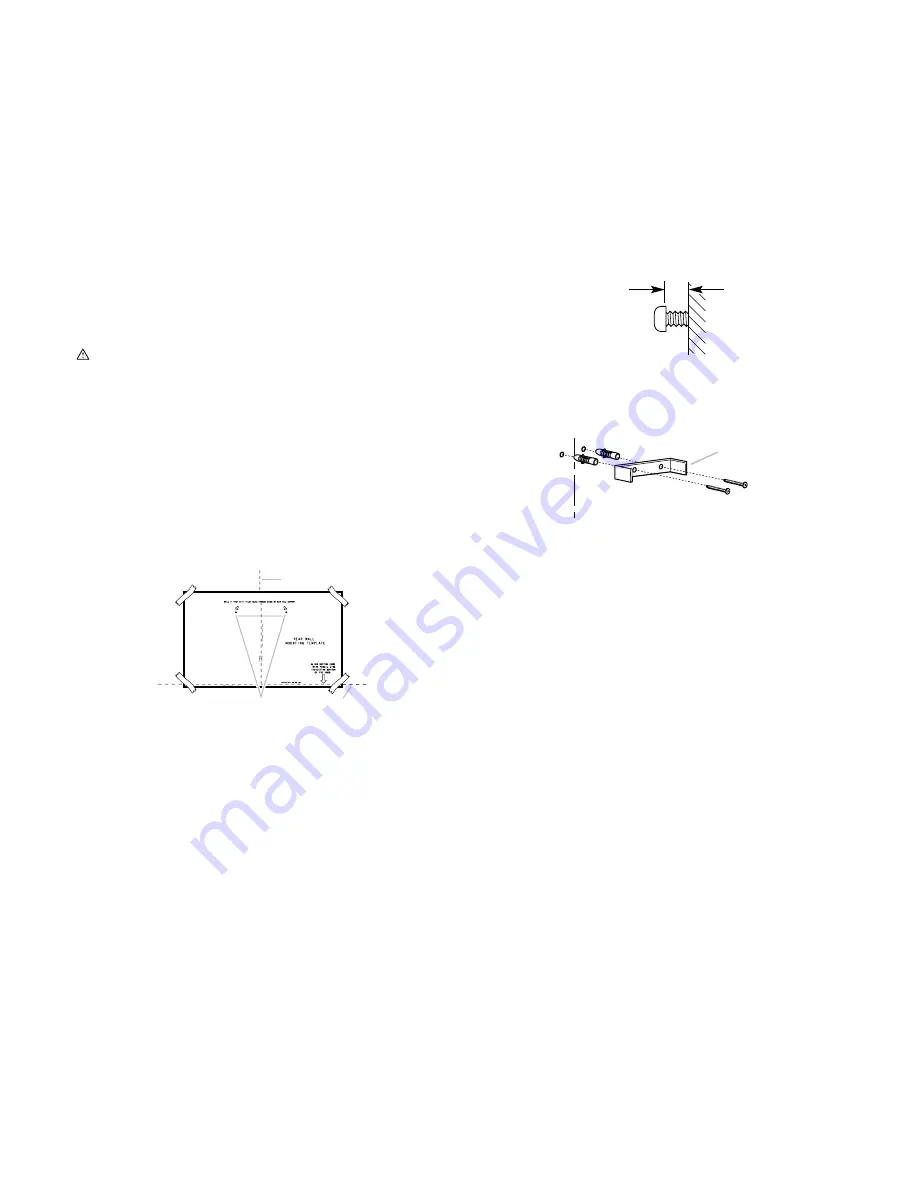
7
Installation
Prepare location
•
It is recommended that the vent system be installed before
hood is installed.
•
Before making cutouts, make sure there is proper clearance
within the ceiling or wall for exhaust vent.
•
Check your ceiling height and the hood height maximum before
you select your hood.
1 Disconnect power.
2 Determine which venting method to use: roof, wall, or
nonvented.
3 Select a flat surface for assembling the range hood. Place
covering over that surface.
WARNING
TO REDUCE THE RISK OF FIRE, ELECTRIC SHOCK, OR
INJURY TO PERSONS, OBSERVE THE FOLLOWING.
4 Using 2 or more people, lift range hood onto covered
surface.
Mounting the duct cover bracket
1 Determine and mark the centerline on the wall where the
canopy hood will be installed. Disconnect power.
2 Select a mounting height from the Installation Heights chart.
Mark a reference line on the wall.
3 Tape template in place, aligning the template centerline
and bottom of template with hood bottom line and with the
centerline marked on the wall.
A
C
B
A. Centerline
B. Fastener locations
C. Mounting height reference (hood bottom line)
4 Mark centers of the fastener locations through the
template to the wall.
IMPORTANT: All screws must be installed into wood. If there
is no wood to screw into, additional wall framing supports may
be required.
5 Remove the template.
6 Drill
3
⁄
16
” (4.8 mm) pilot holes at all locations where screws are
being installed into wood.
7 Install the 2 - 5 x 45 mm mounting screws. Leave a
1
⁄
4
”
(6.4 mm) gap between the wall and the back of the screw head
to slide range hood into place.
1
⁄
4
”
(6.4 mm)
Vent cover bracket installation
1 Attach vent cover bracket to wall flush to the ceiling using
2 - 5 x 45 mm screws.
A
C
D
B
A. 8 x 40 mm anchors
B. Centerline on wall
C. Vent cover support bracket
D. 5 x 45 mm screws
Complete preparation
1 Determine and make all necessary cuts in the wall for the
vent system. Install the vent system before installing the
hood. See “Venting Requirements” section.
2 Determine the required height for the home power supply
cable and drill a 1¼” (3.2 cm) hole at this location.
3 Run the home power supply cable according to the
National Electrical Code or CSA Standards and local codes
and ordinances. There must be enough ½” conduit and wires
from the fused disconnect (or circuit breaker) box to make the
connection in the hood’s electrical terminal box.
4 NOTE: Do not reconnect power until installation is complete.
Use caulk to seal all openings.


